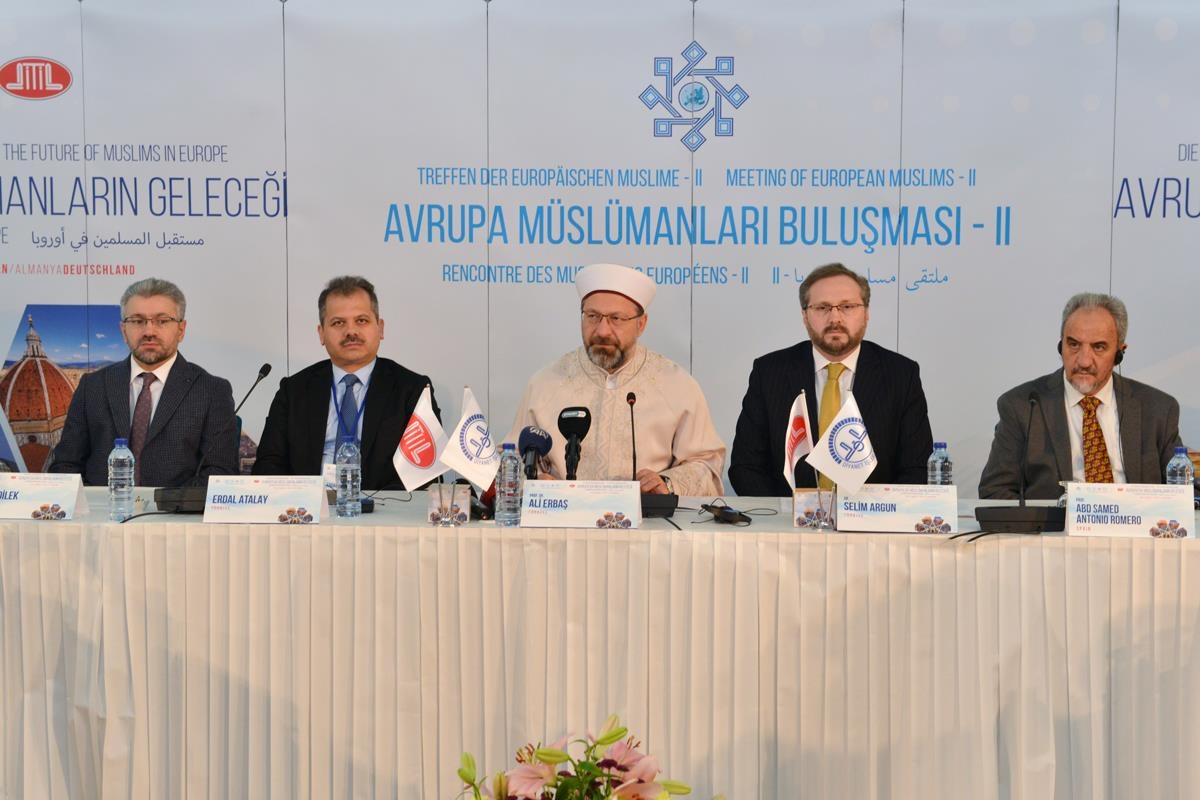Levent Kenez/Stockholm
Turkey’s Religious Affairs Directorate (Diyanet) obtained permission to establish a new academy in a regulation approved by the Turkish parliament on March 16.
The reason put forward for the establishment of the academy is the development of the professional competence of new personnel at the Diyanet. Plans also include the admission of non-Diyanet personnel to the academy in return for three years of compulsory service after graduation. However, the new regulation also provides for the training of foreign clergy.
Ruling Justice and Development Party (AKP) lawmaker and theologian Ahmet Özdemir, who submitted the legislative proposal, said the performance of religious services in a way that meets the needs of the age is only possible with qualified religious officials, stating that the Diyanet requires such an academy to achieve this. According to Özdemir, the academy will play an important role in preventing prejudice against Islam and Muslims.
Proposal amending the Diyanet Law:
Deputies opposing the proposal said during the parliamentary debate that the current education departments of the Diyanet are sufficient to meet the needs outlined in the proposal and that the academy would be a waste of resources.
They also claimed the need for new personnel to become qualified is an admission of the inadequacy of the imam-hatip schools (religious high schools) and theology faculties in Turkey’s universities, in which the Turkish government has invested heavily in recent years to improve the quality of education.
According to the opposition, there are similar educational institutions such as the Police Academy and the Justice Academy, which were established by a separate law independent of their institutions, but they claim the fact that the Diyanet academy is to be established within the framework of the Diyanet Law is problematic for transparency.
For many years the Diyanet has managed an extensive scholarship program for the participation of religious officials in academic studies. It also sends theology students who want to do master’s and doctoral studies abroad on the condition of working for a specified period of time for the Diyanet after completion. In addition, as part of the scholarship program, it offers advanced degree and doctoral opportunities for foreign theology graduates to do academic studies at Turkish universities. The tuition, accommodation and travel expenses of the students are covered.
With the new regulation, the Diyanet will be able to recruit foreign clergy working in any part of the world to the new academy through a different selection process from that used by universities. Instead of certain academic and language qualifications as required by universities, the Diyanet will be able to provide education to clergy in Turkey, most probably to those who are referred by its representatives abroad. This will also enable the Islamist ideology promoted by the government of Turkish President Recep Tayyip Erdoğan to be propagated to foreign clergy.
The Diyanet is one of the most controversial institutions in Turkey. Erdoğan is often accused of using it for his own political ends. Erdoğan opponents claim the Diyanet serves to reinforce the perception that the government’s actions are in harmony with Islam and that Erdoğan is a leader who serves Islam. The president of the Diyanet is more visible in the social arena, which the party base, who had complained about strict secular policies discriminating against the pious segment of society prior to the advent of the AKP, sees as getting revenge on secularists and provides a bonding within the party. The support of the government and the implicit criticism of the opposition, especially in sermons in mosques, are frequently criticized by the opposition. Government-appointed imams often imply in mosques and on social media that supporting the opposition would be a sin and that the gains of Muslims will be lost

The Diyanet is an organization that is also on the agenda in Europe. European countries have begun to take measures against the Diyanet, which employs clergy in the EU, because of the involvement of the clergy in political activities, the dissemination of propaganda for Erdoğan and their alleged spying activities for the profiling of Erdogan’s opponents in Europe.
While Germany is making plans to train its own Muslim clergy, it requires officials from the Diyanet to speak German.
In 2017 Germany launched an investigation into imams from the Turkish-Islamic Union of Religious Affairs (DITIB), an affiliate of the Diyanet, who allegedly provided information about government opponents to Ankara. The investigation, involving a total of 19 imams, could not be turned into a criminal case because they had left Germany and their whereabouts were unknown.
Meanwhile, the Turkish Religious Affairs Foundation (Türkiye Diyanet Vakfı, TDV), a foundation with huge assets and an annual budget of well over a billion Turkish lira, has been transformed into an instrument to project political Islamist ideology abroad. The Erdoğan government tapped the organization to build mosques and religious schools overseas and provide scholarships to thousands of foreign students, all aimed at promoting the firebrand religious ideology that at times resembles those subscribed to by radical terrorist groups.
Nordic Monitor this week reported that according to the latest disclosed financial data, the TDV had 1.3 billion Turkish lira in revenue in 2020, the bulk of which came from donations, and spent TL 853.6 million the same year to fund projects. The value of its assets, mostly in the form of properties owned by holding companies and shares in commercial businesses, was never declared, but it was estimated to be a multi-billion dollar figure.
The foundation has been active in 149 countries and has 1,003 branches in Turkey. The flagship project of the foundation is to educate and train foreign exchange students in line with the Islamist ideology of the Erdoğan regime and raise a generation of young Islamists that will help and promote this ideology in other countries.












